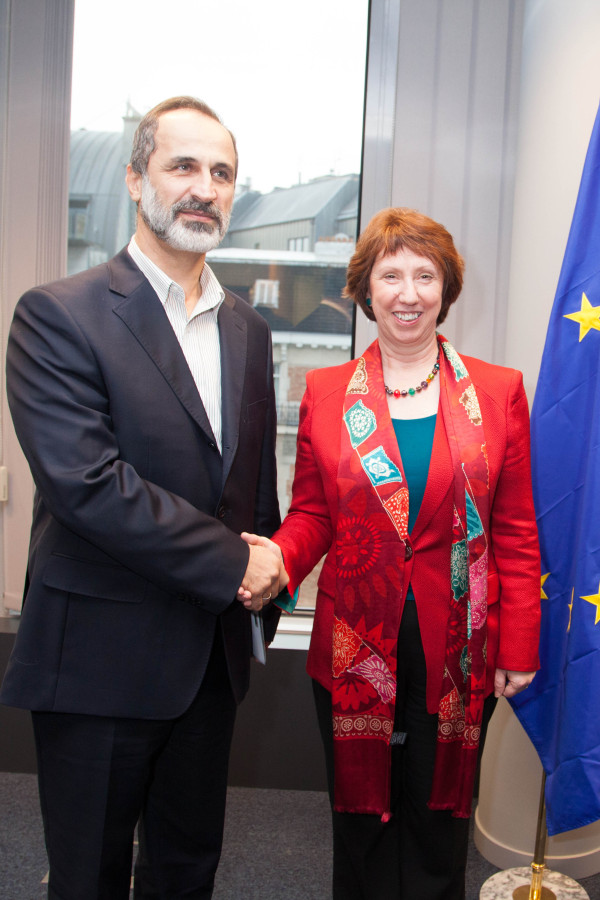On the program of the Council of Ministers of Defense: the Arctic Sea, so so…well, almost!
(BRUSSELS2) The informal meeting of Defense Ministers in Gothenburg on 28 and 29 September will be interesting in more ways than one. But already the letter that Sten Tolgfors, the Swedish Defense Minister, has just sent to his European counterparts can make the capitals of the 27 Member States smile. At least for the first aspect he evokes.... The first day, September 28 will indeed be devoted to two workshops: one on maritime surveillance, the other on battlegroups. The second day of work, September 29 to current operations, industrial cooperation and Afghanistan and Pakistan.
Maritime surveillance (but not the Arctic sea!) The Swedes have planned their first workshop around the "maritime surveillance". It is about examining the "modes of cooperation between the different actors" in this area, whether "civilian or military", in order to be able to benefit both from the maritime domain itself, which is more within the competence of the European Commission (transport security, fishing, fight against migration, etc.) than to the ESDP, which is more a matter for the Member States and the European Union. The Swedes, who must not lack humor, have planned to "stimulate the discussions by illustrating it by showing civil and military cooperation in maritime surveillance in the Baltic Sea". Ministers should thus visit a maritime surveillance cell. ... It is not known whether the subject of the Arctic Sea. But I think that the Swedish Minister, like his Finnish counterpart, will be keen to explain how one manages to "lose" a boat attacked by "pirates" not far from the Swedish coast. The discussion is indeed likely to be lively.
And the stimulation may not have the expected effects! ![]() More seriously, the presidency wants to promote a discussion that will strengthen cooperation between civilian and military resources, and make full use of the EU's "unique" potential in terms of crisis management and conflict prevention.
More seriously, the presidency wants to promote a discussion that will strengthen cooperation between civilian and military resources, and make full use of the EU's "unique" potential in terms of crisis management and conflict prevention.
The future of Battlegroups? The second workshop will be devoted to the use and flexibility of EU Battlegroups, as I announced (read a concept is good, using them is better). Minister Tolgfors had announced it before the start of the Swedish presidency: it is a priority. "IThere needs to be a political discussion on how to make full use of the potential of battlegroups as a tool in the service of the ESDP".
Continuation in Somalia and withdrawal in Bosnia ? The third working session will take place on September 29 and will be devoted to operations, especially Somalia and Bosnia. The commander of the Atalanta operation against piracy, Rear Admiral Hudson will be there to report on the latest developments and above all on the continuation of the operation (a second force generation meeting will take place in Brussels on October 8 to fine-tune all the details). It will also be an opportunity for the Ministers to discuss the possibilities of a broader commitment in Somalia (training of Somali security forces as the French and Americans have started). A proposal that does not really delight all the Member States. The Commander of Althea, General John McColl of NATO (Althea is conducted under the "Berlin+" system with NATO command resources), will also be there to examine possible developments, in particular the future small mission " non-executive" which will succeed the military force.
More resources for the European Defense Agency and more cooperation projects. The fourth working session will be devoted to the development of military capacity and possible cooperation. A very industrial session. The challenge is how to increase "transparency and harmonization" in these markets. The directive on public defense contracts has only just entered into force, so it is difficult to draw conclusions. On the other hand, the director of the European defense agency will be there, with his budget proposal on the table. It will then be time to see if the spirit of cooperation is real and if words are followed by deeds.
The European commitment in AfPak, tricky! Last but not least, as a dessert guide, the Swedish presidency reserved the most difficult subject for the working lunch behind closed doors - reserved for Ministers - on the European commitment in Afghanistan and Pakistan. Objective: to find better coordination between all Europeans and European structures in the region. Which is not a synecure! The two special envoys from the EU and the UN, Ettore Sequi and Kai Eide will be present, as well as members of the European Commission.

Comments closed.